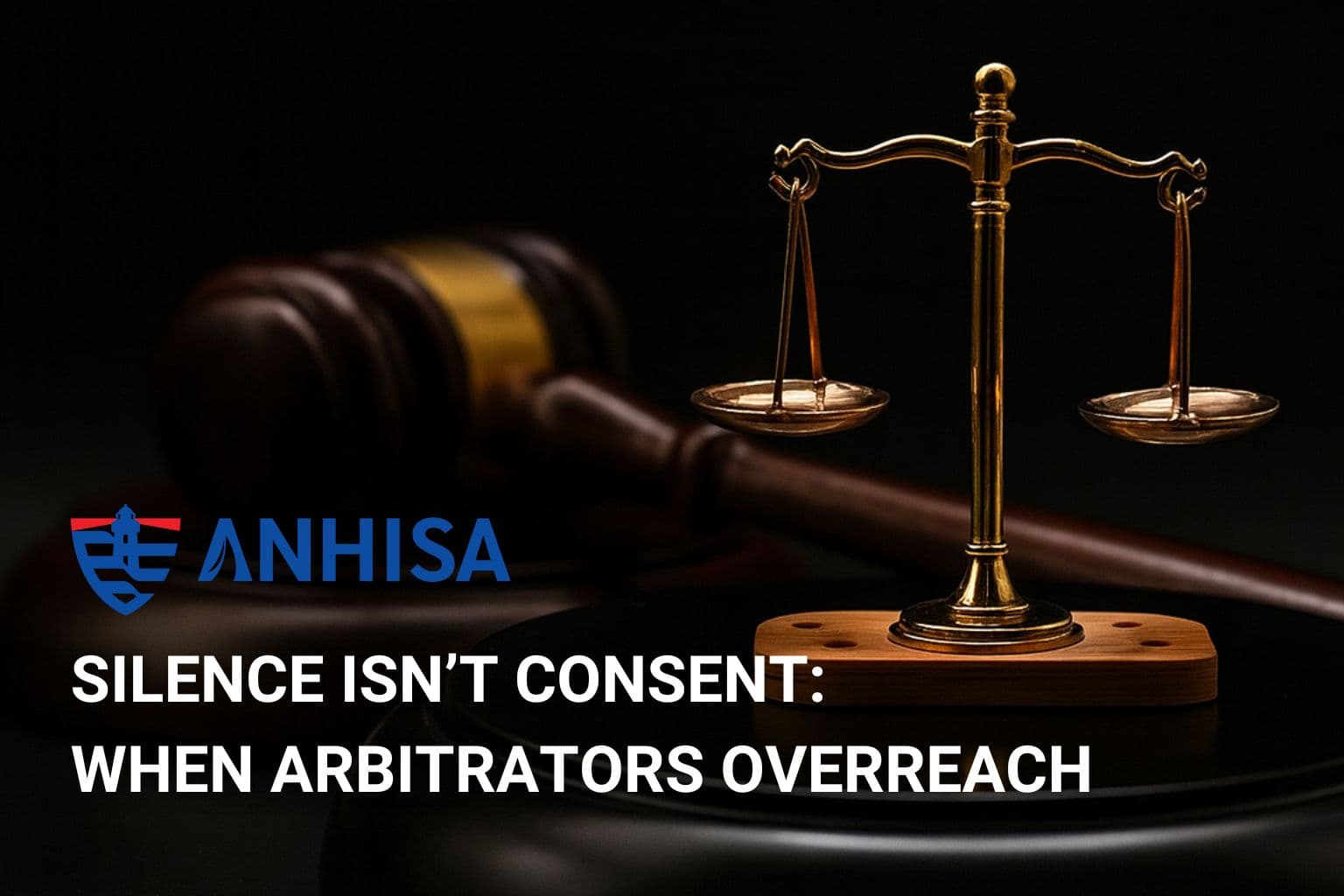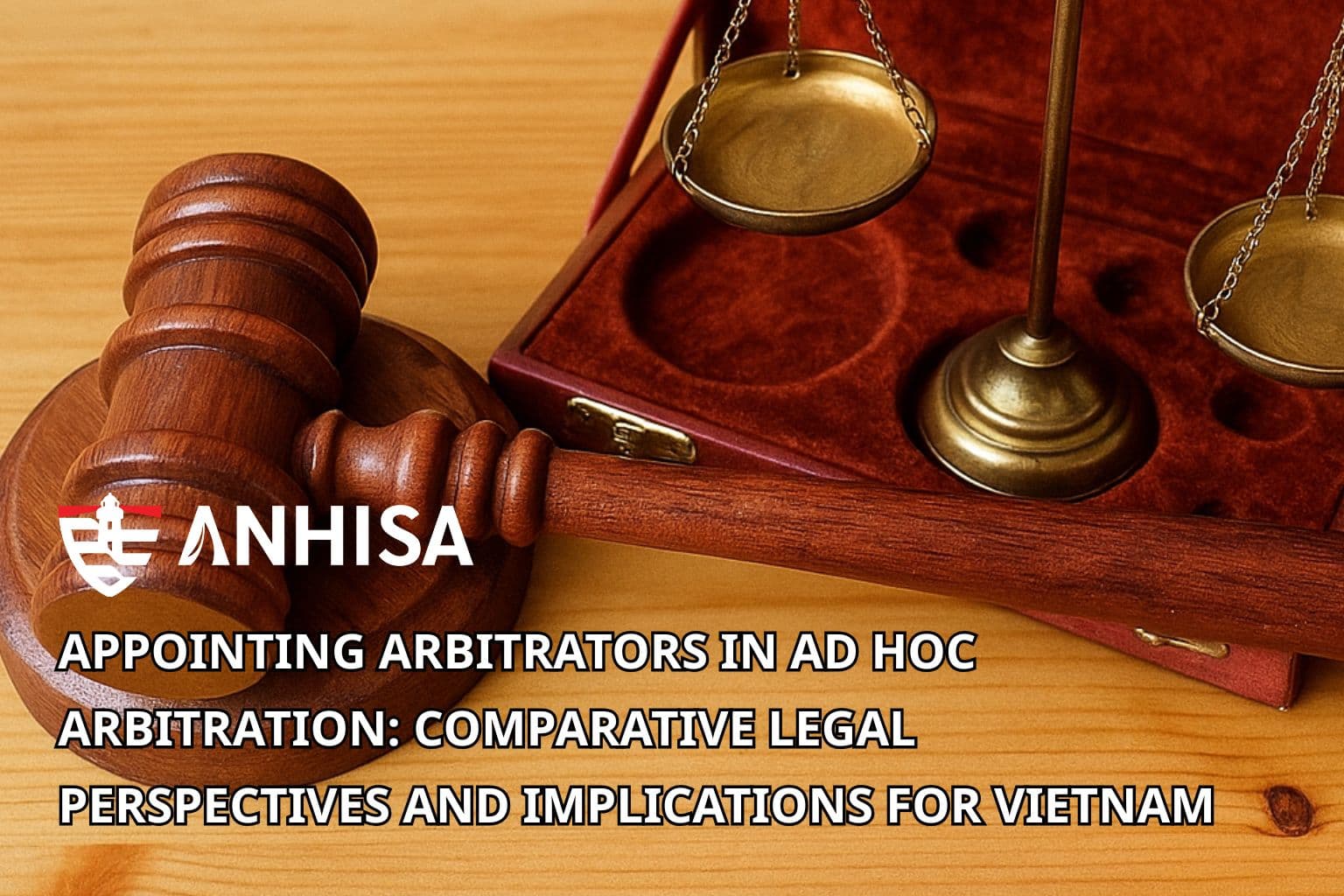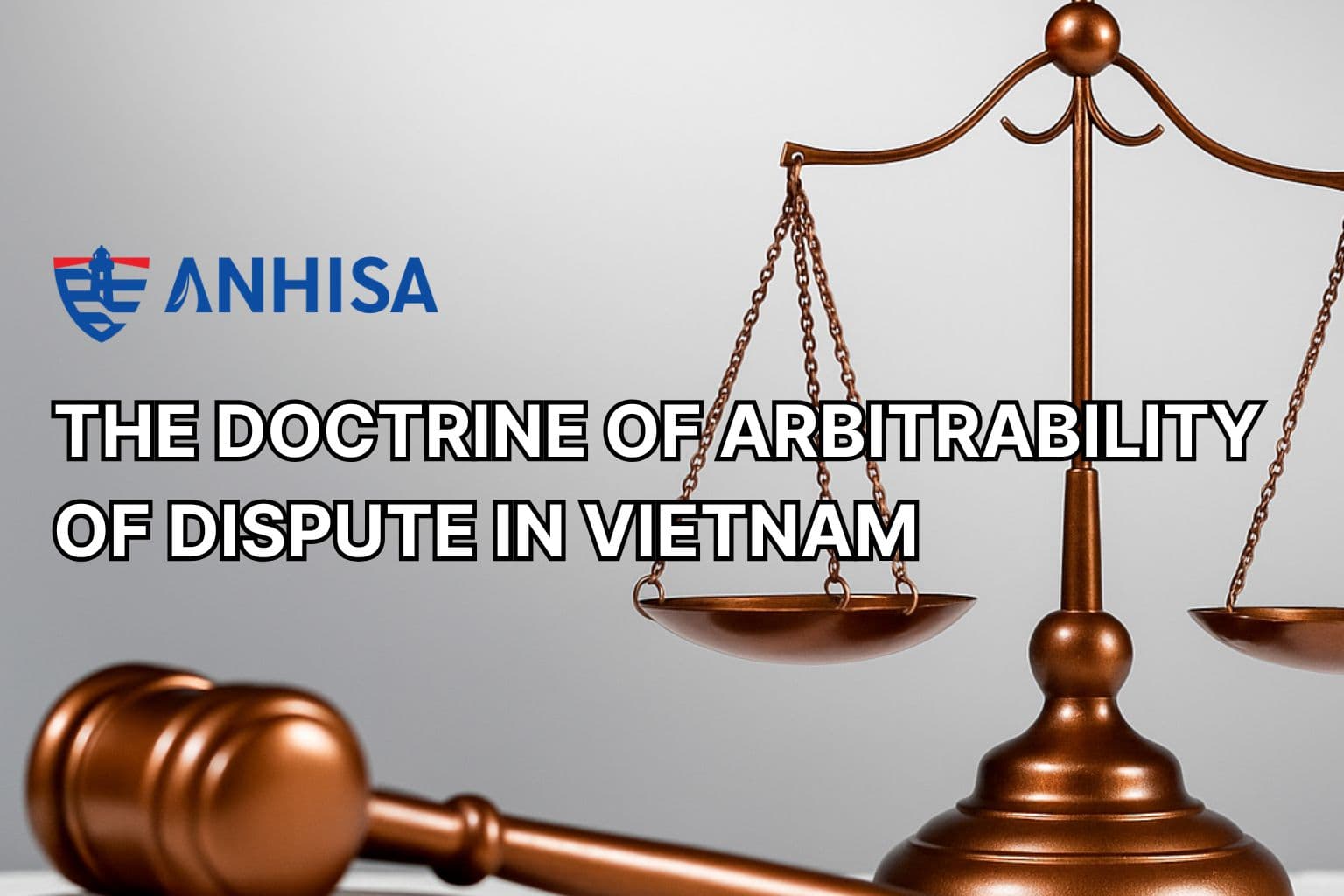[A SERIES OF ARBITRATION NOTES] Episode 5 | Enforcement of a Foreign Consent Award under Vietnamese Law: Practical insight for judgment creditors
January 02, 2025
The Vietnamese approach to upholding the principles of the New York Convention 1958 is prevalent in two elements: that interpretation of the New York Convention before the Vietnamese court will have to adhere to Vietnamese regulations at large; and that enforcement of an arbitral tribunal will adhere to existing regulations of Vietnamese law on judgment enforcement. Under Vietnamese laws, a Consent Award is considered the same as an Award rendered in an adversarial setting.
Enforcement of a Foreign Consent Award
Consent Awards, whether foreign or domestic, are enforced in the same manner as a Vietnamese court judgment. This extends to Foreign Consent Awards, therefore Foreign Consent Awards will adhere to domestic statutes such as Law on Commercial Arbitration and Law on Enforcement of Civil Judgments.
Enforcement of a Consent Award rendered outside of Vietnamese jurisdiction will adhere to the explicit regulations of these statutes:
- 2010 Law on Commercial Arbitration (LCA),
- Resolution No. 01/2014/NQ-HDTP dated 20 March 2014 of the Council of Justices of the People’s Supreme Court on guidelines for the 2010 Law on Commercial Arbitration (Resolution 01),
- 2015 Code on Civil Procedure (CPC),
- 2008 Law on Enforcement of Civil Judgments (LCJE).
Under Resolution 01, arbitral awards as a subject of enforcement will include both Consent Awards and Arbitral Awards. The CPC then facilitates enforcement of foreign arbitral awards at large by determining that such awards when approved for enforcement in Vietnam will have the same legal validity as an enforceable civil judgment or civil ruling of a People’s Court in Vietnam.
In practical terms, a Consent Award rendered outside of Vietnamese jurisdiction will now go through the same enforcement process as a judgment rendered at a People’s Court in Vietnam. When a Foreign Consent Award is approved for enforcement in Vietnam, it will bear the same legal weight as any Vietnamese civil judgment and as any Vietnamese civil ruling.
Conditions to enforce a Foreign Consent Award
A Foreign Consent Award must be consular legalized before it is considered valid in Vietnam. There should also be a Vietnamese translation of both the award and the arbitration agreement. As is also the case with Vietnamese judgments, there must also be visible proof that the award has enforcement validity. Timebar for enforcement is 3 years, exclusive of time during force majeure events as well as material adverse effects.
For a request to enforce a Foreign Consent Award to be eligible, the judgment debtor must either be residing/working in Vietnam, be an organization registered in Vietnam, or have assets related to the enforcement in Vietnam at the time of request for enforcement. This request should be accompanied by at least (i) the original of the Foreign Consent Award; and (ii) the original or certified copy of the arbitration agreement between the parties.
The above requirement will complicate things for the judgment creditor. Firstly, the judgment creditor must also be ready to part with an original of the Foreign Consent Award, which for some enterprises could mean bigger problems down the line.

Secondly, we are talking about documents created and executed in a jurisdiction that is not Vietnam, which means that consular legalizations against foreign signatures, and seals…. are a must. If the arbitral award and arbitration agreement are not in Vietnamese, there must be certified, legally authenticated translations of these documents.
The CPC stipulates that for an award rendered in a foreign arbitration setting to be considered for enforcement in Vietnam, it has to (i) resolve the substantive dispute fully and finally, (ii) conclude all arbitration proceedings and (iii) be vested in enforcement validity.
Here, with foreign awards (which includes Foreign Consent Awards), courts in Vietnam put a special emphasis on the issue of enforcement validity. This is because due emphasis is also put on the same with arbitral awards rendered inside Vietnam. The LCA renders the right of unilateral enforcement against arbitral awards actionable upon expiry of the compliance deadline, with an extra prerequisite that there is not already a petition to set aside that award from the judgment debtor. This means an arbitral award is not unilaterally vested enforcement validity the moment the judgment debtor is delinquent.
Instead, the judgment creditor will have to produce evidence for the extra prerequisite. This usually comes in the form of a confirmation from the competent provincial court that the award is not encumbered by any petition to set aside. For example, in this one case, a debtor under a consent award rendered in Hanoi is delinquent, and therefore enforcement is actionable upon them. Here, the judgment creditor first waited until the debtor was indeed delinquent; then the creditor submitted a request to the People’s Court of Hanoi City for a confirmation that there is no set aside procedure initiated upon their award. The Court then returned with such confirmation, and the judgment creditor will include that confirmation in their enforcement dossier. Without such a confirmation, the Hanoi Department of Civil Judgment Enforcement would deny processing of the enforcement dossier because they do not find themselves responsible for conducting such confirmations themselves, or they should bear the risk of misconduct should the extra prerequisite be not met. This perspective has since been upheld by several other enforcement departments throughout Vietnam.
Under the CPC, the deadline for submitting a request for enforcement for recognition and enforcement of foreign arbitral awards is 3 years from the date the foreign arbitral award becomes legally effective. The 3-year period may be extended in force majeure cases or objective obstacles. Because the deadline for requesting enforcement of a foreign consent award is 3 years from when the award is legally effective, there is a wide margin of time between the end of the compliance period and the expiry of this deadline where judgment creditors can take action.
The CPC stipulates that time will not be counted toward the deadline if the applicant can prove that force majeure events or objective obstacles prevented them from submitting the request for enforcement within the 3-year period. The duration of force majeure events or objective obstacles will not be counted toward the request for enforcement deadline.
Because both domestic consent awards and Foreign Consent Awards are under the same umbrella term, this treatment also extends to Foreign Consent Awards. Therefore, judgment creditors should pay attention to the compliance period, and prepare as many materials as they could beforehand so that they are ready to initiate enforcement as soon as the compliance period is over. Local counsels have over time developed a time-sensitive system, where they will achieve both for judgment creditors.

Risks of setting aside a Foreign Consent Award
Fundamentally, a Foreign Consent Award is at risk of setting aside from (i) a void arbitration agreement, (ii) a breach of the scope of arbitration, and (iii) procedural flaws. However, technicalities rarely work in setting aside an award.
For Foreign Consent Awards, Vietnamese courts will examine both procedural and substantive aspects that could affect your enforcement rights. The fundamental grounds for setting aside begin with the validity of your arbitration agreement under applicable law and the capacity of the parties. While procedural violations concerning notice and opportunity to be heard rarely succeed against consent awards, you should maintain complete documentation of all settlement communications to counter such challenges. Pay particular attention to ensuring your award stays within the scope of the arbitration agreement and settlement terms, as exceeding this scope provides grounds for challenge. The proper constitution of the tribunal and adherence to agreed procedures also warrant attention, as does obtaining confirmation that the award is binding and hasn’t been set aside at the seat.
As a judgment creditor, you benefit from Vietnamese courts’ pro-enforcement stance on consent awards. The presumption that judgment debtors voluntarily agreed to settlement terms works in your favor. Technical challenges like improper notice rarely succeed when debtors participate in settlement negotiations. For instance, one judgment creditor successfully defended enforcement of their Singapore-seated consent award despite procedural irregularity claims, as the court emphasized the debtor’s active participation in settlement discussions.
ANHISA LLC AND OUR EXPERTISE
ANHISA LLC is a boutique law firm specializing in Dispute Resolution, Shipping and Aviation. Being the leading lawyers in various fields of law, our qualified, experienced, and supportive team of lawyers know how to best proceed with a case against or in relation to Vietnamese parties and are well equipped to provide clients with cost-effective and innovative solutions to their problems.
Regarding dispute resolution, we have represented Vietnamese and foreign clients in the resolution of disputes involving maritime, construction, commercial and civil matters. Our lawyers are well-equipped to offer services on a wide range of disputes and conflicts, whether cross-border or purely domestic, to appear before any Judges or Arbitral Tribunals. The firm is prepared to assist clients in designing the appropriate dispute resolution procedure to help resolve conflicts as efficiently and cost effectively as possible, which may involve combining elements of mediation and other methods such as arbitration.
AUTHORS
DANG VIET ANH
Managing Partner
Mobile: (+84) 983 467070
Email: [email protected]
NGUYEN THI TUYET MAI
Senior Associate
Mobile: (+84) 939 117398
Email: [email protected]
TO VU NHAT MINH
Associate
Mobile: (+84) 364 260088
Email: [email protected]
This article aims to furnish our clients and contacts with general information on the relevant topic for reference purposes only, without creating any duty of care on the part of ANHISA. The information presented herein is not intended to serve, nor should it be considered, as a substitute for legal or other professional advice.
Related posts

SILENCE ISN’T CONSENT: WHEN ARBITRATORS OVERREACH
November 27, 2025

APPOINTING ARBITRATORS IN AD HOC ARBITRATION: COMPARATIVE LEGAL PERSPECTIVES AND IMPLICATIONS FOR VIETNAM
October 08, 2025

PARTIES TO AN ARBITRATION AGREEMENT
October 01, 2025

THE DOCTRINE OF ARBITRABILITY OF DISPUTE IN VIETNAM
September 24, 2025
- TEL:
- Hanoi Office: +84 24 320 47609
- Saigon Office: +84 28 5416 5873
- HOTLINE:
- +84 (0) 939 117 398
- +84 (0) 983 488 380

